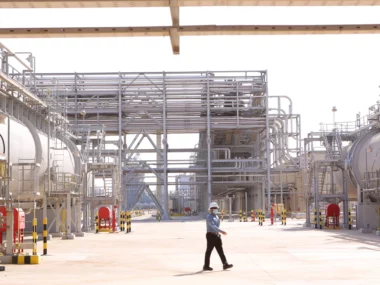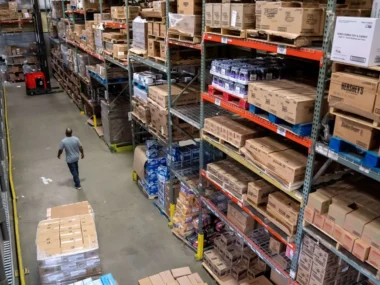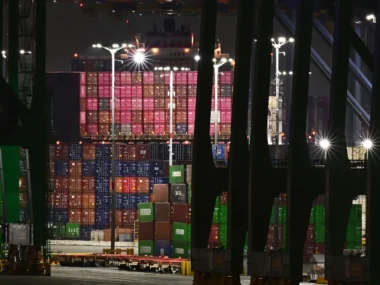Warner Bros reported that the successful film Barbie made a contribution of over £80 million to the UK economy while in production.
The production studio mentioned that the making of the movie resulted in the creation of 685 jobs, the engagement of over 6,000 extras, support for 754 local businesses, and payment of more than £40 million in local wages.
Under the direction of Greta Gerwig, the film was primarily filmed at Warner Bros studios in Leavesden, Hertfordshire.
Warner Bros further informed a Parliamentary committee that the movie has garnered £95 million in box office revenues in the UK.
Despite Barbieland being designed to resemble a California toytown, specific sets like Barbie’s Dreamhouse were constructed and filmed within the UK studio.

Barbie has emerged as the leading film of 2023, grossing over $1.4 billion at box offices worldwide.
The Leavesden studio has served as the filming location for several notable movies, including the Harry Potter series, The Batman, and Aquaman.
Additionally, the upcoming Wonka film, inspired by Roald Dahl’s Charlie & The Chocolate Factory and starring Timothée Chalamet, was also filmed at this 200-acre site situated just north of London.
Warner Bros Discovery, in its testimony to the Culture, Media, and Sport committee’s investigation into British film and high-end television, highlighted that the UK stands as the company’s largest hub outside the US, boasting over 4,000 permanent employees.
The studio has announced a substantial expansion plan, aiming to increase its capacity by more than 50% and generate an additional 4,000 job opportunities.

Timothée Chalamet portrays the character of Willy Wonka in the film, while Hugh Grant appears as an Oompa-Loompa.
The expanded complex is poised to serve as the central location for upcoming films within the DC Studios roster, housing iconic characters such as Superman, Batman, and Wonder Woman.
In additional testimony submitted to the inquiry, Pinewood Studios in Buckinghamshire asserted that the UK holds the title as the most sought-after filming location globally.
According to Pinewood, in 2022, 23% of international feature film and high-end television productions were centered in the UK, surpassing California’s 21%.
Pinewood Studios highlighted that this success “reflects the perspective of major global content creators, affirming the UK as the premier and preferred production market worldwide.”
The Achievements of the United Kingdom Are In Jeopardy.
Amazon cautioned that the availability of studio space in the UK is nearly at full capacity. Fulwell 73, James Corden’s production company, expressed concerns to the committee, stating that these capacity issues pose a threat to the ongoing success of the UK. Fulwell 73, constructing a new studio complex in Sunderland, emphasized that existing studios are fully booked, leading to crew shortages impacting the quality and profitability of productions. They highlighted evidence indicating that the UK is losing productions due to these limitations.
The Motion Picture Association drew attention to the intense competition from other countries, highlighting serious skills gaps in the UK and emphasizing that any planned changes to tax breaks should not harm the country’s appeal to the industry.
Although the UK remains a favored location for Hollywood producers, worries were raised about the decline of independent British film-making and distribution. The British Film Institute underscored an existential crisis in the industry, attributing factors such as cost increases, crew competition, reduced public funding, and decreased investor risk appetite, making financing and distributing UK independent films challenging both domestically and globally.
In recent news, Pathe announced the closure of its UK theatrical film distribution business, intending to shift its focus to TV series. Notably, Pathe UK has been involved in producing films like The Queen, Girl With A Pearl Earring, The Iron Lady, Suffragette, Selma, and The Great Escaper. Pathe’s English-language films will now be managed by its Paris headquarters.
In response to the committee inquiry, the Department for Digital, Culture, Media and Sport acknowledged the existing challenges in the industry. It expressed its commitment to empower the industry for continued growth, aiming to maintain a robust and globally competitive sector.











